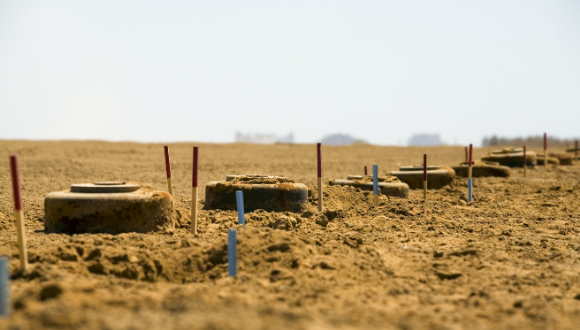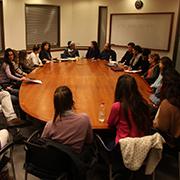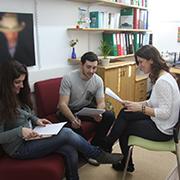Environmental Justice and the Protection of Animals Rights
“Like winds and sunsets, wild things were taken for granted until progress began to do away with them…We abuse land because we regard it as a commodity belonging to us. When we see land as a community to which we belong, we may begin to use it with love and respect.”
Aldo Leopold, early 20th century environmental philosopher and ethicist
In 2019, The Clinic submitted a mass tort class action against 30 industrial polluters in the Haifa Bay area, on behalf of more than 3,000 residents suffering from lung cancer and Non-Hodgkin’s lymphoma. This case, submitted in collaboration with private law firms, is the first of its kind in Israel; industrial polluters have never faced financial repercussions for the effects their practices have on public health. In February 2021, the court rejected the defendants' motion for outright dismissal of the case, thus declaring it legally possible to file such claims in Israel. This important precedent paves the way for other lawsuits of this kind and creates a strong deterrence factor against present and future polluters.
The Clinic filed a Supreme Court petition in response to plans to develop a phosphate mine at Sdeh Barir. The plan was approved despite claims by the Ministry of Health that the mine would pose a grave health risk to residents of Arad, Kseiffe, and to the Bedouin community of Al-Fura; the latter, a community of 10,000, would be evacuated under the plan. After an order to freeze development pending further deliberations was issued by the court, the State agreed to amend its outline to include an examination by the ministry of health and the outline was approved by the National Building and Planning Committee. This set an important precedent whereby all future mining plans will have to include a similar health examination prior to their approval.
The Clinic petitioned the Court to order Israel’s Planning Administration to withdraw its maritime space policy paper, as it prioritizes development over ecology and fails to address the subject of climate change.
The Clinic submitted a petition to the Supreme Court against the Ministry of Environmental protection, demanding that it take responsibility for the illegal dumpsites and fires at the Arab town of Judeida-Maker. Furthermore, the petition calls for the Ministry to develop, in cooperation with the council, a wide-ranging plan for safe waste disposal and enforcement in the area. In March 2021, the Court decided to deliberate the case and rejected the Ministry’s request for outright dismissal.
As part of its struggle to eradicate the use of battery cages in the egg industry, the Clinic filed an injunction against an egg producer that keeps hens in battery cages.
The Clinic assisted in efforts to make sure that compensations ruled in a class action against a meat producer for animal welfare violations, will be allocated for animal protection purposes.
The Clinic collaborates with the Nonhuman Rights Project, which aims to change the legal and moral status of animals around the world via habeas corpus petitions. As part of this collaboration, the Clinic serves as the NhRP’s research group in Israel and is examining options for the implementation of the organization’s approach, based on local and international law and on expert opinions.
Following an administrative appeal filed by the Clinic along with a partner NGO against the Taibeh Local Committee, which refused to disclose the planning documents of a waste disposal site that operated without a permit, an amendment to the Planning and Building Regulations was issued. The amendment stipulates that building permits and all documents attached to them should be open to the public without the need to submit a freedom of information request (with certain exceptions specified in the regulations). The Supreme Court accepted the appeal and ordered the respondents to pay expenses in the amount of ILS 30,000.
As part of its efforts to promote efficient public transportation, the Clinic, along with a partner NGO, manages the "Small Claims" project. As part of this project, students help public transportation consumers stand up for their rights and require operators to provide a reliable, fast and convenient service, as required by law and under the terms of their license.





